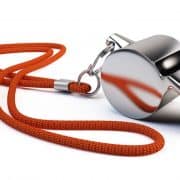|
Getting your Trinity Audio player ready...
|
By Kwazi Dlamini
The South African government recently entered a partnership with the government of France to combat corruption, cyber-crime and to improve the Special Investigating Unit’s (SIU) cyber forensic division.
South Africa justice and correctional services minster Ronald Lamola put pen to paper along with Catherine Colonna, the French foreign affairs minister signed a co-operation protocol agreement on Monday, 19 June 2023. Also in attendance were SIU head Andy Mothibi, South Africa’s international relations minister Naledi Pandor and deputy justice minister John Jeffery, and the EU ambassador to South Africa, Sandra Kramer.
“We regard this as a very important undertaking by our department of justice,” said Pandor.
The rise in use of digital technology across the globe has opened the doors for cyber criminals to exploit inefficiencies of the digital world.
“These types of crimes are no longer just national,” said Lamola. “They are transnational in nature. They see no boundaries, no borders. This co-operation will help us to enhance our skills and deal with the number of cyber-crimes in the country – and we are glad it will also enable us to help in the SADC [Southern African Development Community] region and across the entire African continent.”
It will boost the investment climate in South Africa, he added.
Inadequacies of online systems are often exposed when criminals exploit them for their benefit, because as technology and online systems improve so do the skills of cyber criminals. In 2022, over 800 000 people worldwide fell victim to cyber-crime – this includes governments, businesses, and individuals. This particular type of crime becomes tricky to investigate because it is mostly transnational, which is why the collaboration between South Africa and France is important in tackling cyber threats.
“This is a landmark in our bilateral co-operation in fighting corruption and cyber-crime,” said Colonna.
The collaboration is also important to fight the rising number of cyber-crime incidents in South Africa, where cyber-crime victims increased by 8% from 2021 to 2022. Targets of cyber criminals in the country are financial institutions, government departments, and others. In 2022, 78% of local organisations were hit by ransomware. In 2021, a ransomware compromised sensitive files in the Department of Justice and Constitutional Development, that contained personal information including banking details of users of the department’s services.
Cyber forensic boost
The bilateral agreement aims to bolster the SIU’s cyber forensic investigations and financial crimes capabilities. South Africa currently ranks at number five in the world in cyber-crime density, a cause for concern for authorities. France ranks lower than South Africa in cyber-crime density, and the SIU will benefit from the country’s successes. The National Cyber Security Index also ranks France as one of the top 10 countries best prepared for cyber-attacks which is another positive benefit from this agreement.
“We’re very thrilled that skills development has been inserted as a key priority in the protocol, since skills are a key objective of the South African government, and a key objective of the partnerships and co-operation measures we undertake with a range of international partners,” said Pandor.
“I’m confident that this partnership between the two countries will ensure improved capacity and skills for the Special Investigating Unit in leading the fight [against corruption],” she added. “This is well in line with our National Development Plan, to ensure a corruption-free society, one which adheres to strict ethics, throughout our society and in our government.”
Skills transfer
An anti-corruption academy is also on the cards from this partnership, the academy will train the SIU, other law enforcement agencies and other anti-corruption agencies in the SADC region.
“The intention is also to create a regional school, with the co-operation of France, that will receive investigators from the 16 countries of SADC,” Colonna said. “The SIU has 22 trained trainers who possess the capability to train other investigators.” This was also achieved with French assistance.
“Since the very early stages of our co-operation, members of the SIU have been to France and have had opportunities … to see and experience the French expertise in the field of mostly cyber investigations. I call for those exchanges to grow and continue in the future,” she said.
To further improve its cyber-crime fighting abilities, the SIU recently signed a memorandum of agreement with the Council for Scientific and Industrial Research. The two institutions joined forces to share expertise and skills in combating corruption, fraud, and cyber-crime in the country. The mutual agreement further aims to develop digital investigation tools and the ability to prevent cyber threats before they occur.
Looking at the cyber-crime numbers in South Africa, it is clear that the country needs improved capacity in dealing with this sort of crime and the SIU must be up to the task to protect people from becoming cyber-crime victims.







